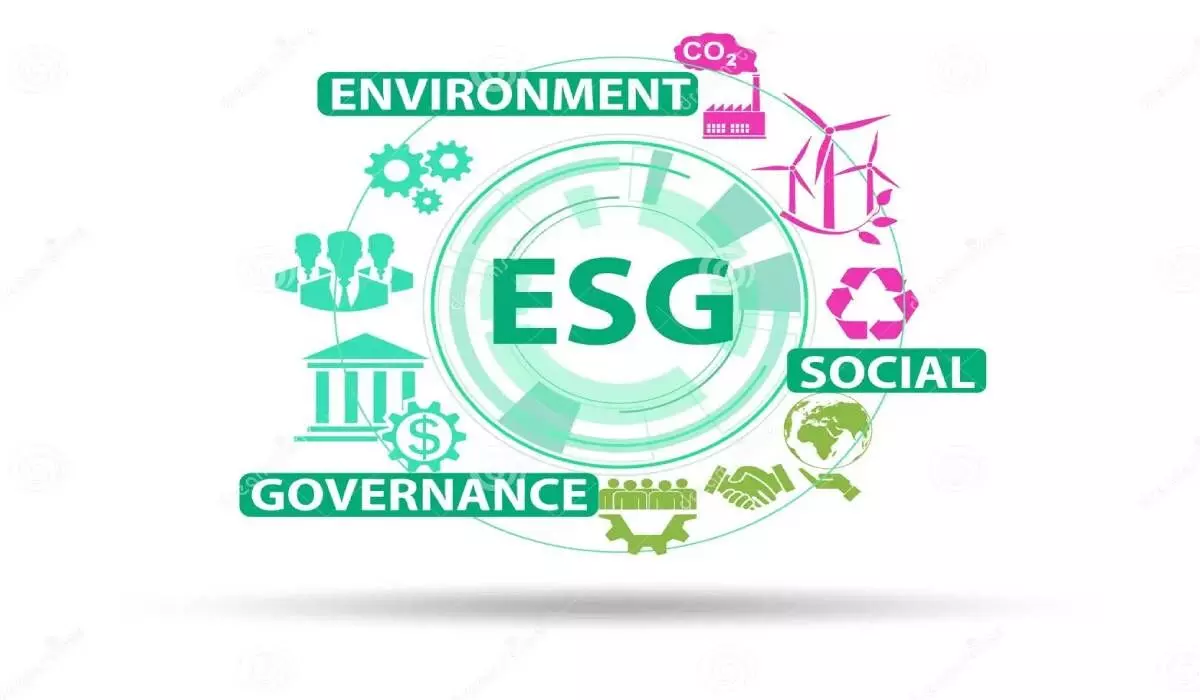Focus should be on the environmental, social and governance factor
image for illustrative purpose

Climate change and pollution have been a matter of serious concern all over the world in the last few years. High pollution levels worsen our changing climate — specifically, excessive greenhouse gas emissions into the atmosphere from human activities, such as automobiles, factories, power plants, and more. All these issues need to be addressed properly and in a time-bound manner. A good thing is that they are being addressed in varied degrees. However, as the world celebrates World Environment Day on June 5, the spotlight is on Environmental, Social, and Governance (ESG) investing—an avenue with tremendous potential for sustainable growth and financial opportunities. According to Global Innovations Report (GIR) by FIS Global- a Fortune 500 Fintech company, financial services firms worldwide recognize ESG as a powerful tool to enhance competitiveness, attract increased investment, and foster sustainable development. In a recent global McKinsey survey, many respondents say their organization’s ESG efforts have created both financial value and increased broad impact in the past three years. Respondents report that these organizations have built clear ESG momentum and have seven organizational traits in common.
The latest McKinsey Global Survey on environmental, social, and governance issues asked more than 1,100 respondents in more than 90 countries how their organizations are rising to this challenge. Almost nine out of ten stated that ESG subjects are on their organization’s agenda. While environmental topics are the ones making headlines, just one-third of respondents rank environmental issues as their organization’s greatest ESG priority. They reported that their organizations are not just paying lip-service to ESG but are making meaningful ESG changes that have demonstrable benefits. More than two-thirds of respondents say their organizations have achieved broad impact from their ESG efforts in the past three years, and 43 per cent report that their organizations have captured financial value from their ESG investments over that span—suggesting that the full effects of ESG are multivariable and may take time to fully capture.
Quite significantly, these organizations approach ESG from a growth perspective. The organization’s priorities exceed merely conforming to industry standards or regulatory requirements and aim toward unlocking new opportunities. These organizations also strive to connect with external stakeholders and to be accountable to them. The Global Innovations Report by FIS, on its part, reveals that 90 per cent of financial services institutes acknowledge the potential of ESG to attract more investing opportunities. And 89 per cent of these firms are investing in technology to provide detailed ESG ratings for assets and securities. Mind you that investing in environmental, social and governance extends beyond financial returns. It motivates investors to support companies prioritizing sustainability and contributing positively to society and the environment, on the whole. It doesn't only account for responsible investments but also presents an opportunity to generate long-term value for people and the planet. It is evident that ESG investing has emerged as a catalyst for positive change and sustainable growth.

